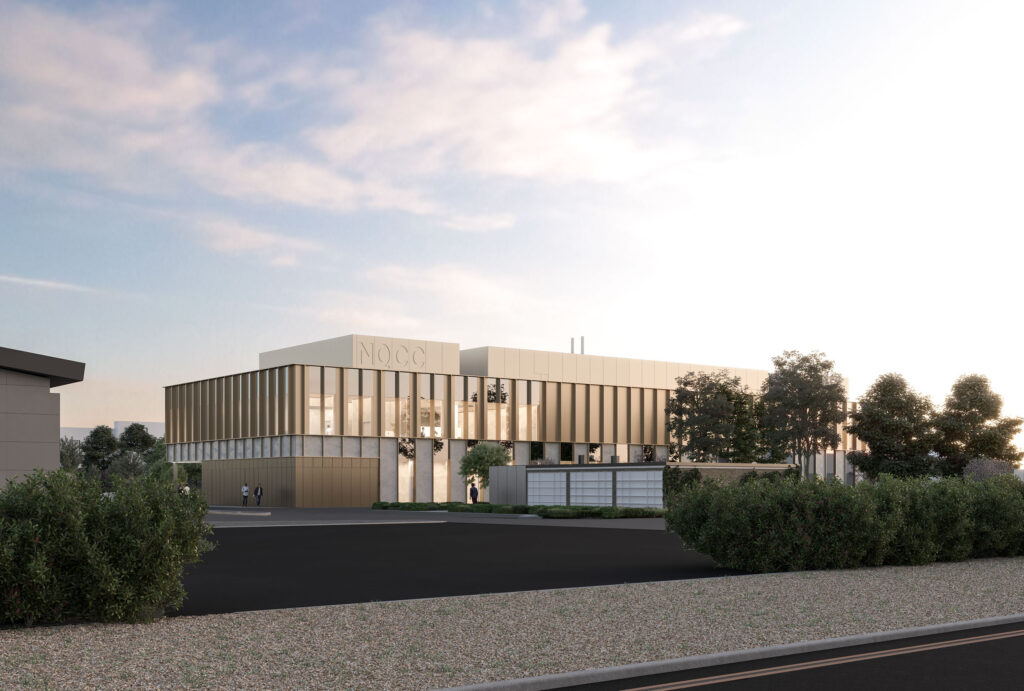
Quantum: The new way to reduce NHS wait times, cost and waste
With a daughter who’s a hospital doctor, Tim Thomas from Harwell-based Applied Quantum Computing has a personal motivation to develop quantum techniques that could save the NHS billions of pounds.
His team are researching quantum techniques to potentially support healthcare trusts in improving management of their operational activities – which could reduce waiting lists, as well as pressure on staff.
“We have seen first-hand the difficulties health services are facing. The system is creaking – it’s great if we can help tackle that in a small way,” he said.
Growing with Harwell and QuBIC
…It’s a goal that sits nicely with having an office at Harwell Innovation Campus – home to scores of businesses involved with the quantum supply chain., as well as national facilities – the National Quantum Computing Centre (NQCC), and the Science and Technology Facilities Council (STFC).
Those two facilities worked in partnership with Harwell to launch the Quantum Business Incubation Centre (QuBIC) – a programme aimed at turbo-charging quantum businesses via up to £50,000 of targeted R & D funding, and £10,000 of R & D vouchers to spend with public sector partners, as well as business support including 1:1 coaching, investment readiness, market validation, intellectual property advice and meetings with high calibre stakeholders within industry.
“Being involved in the Harwell ecosystem is very, very helpful to us,” said Tim.
“We joined QUBIC as a start up to get help and support in reaching the next stage – becoming a bigger SME.
“The QUBIC programme has been great. We’ve had support with IP, access to lawyers, accountants and experience/lessons learned from others. We have meetings where they hold us to account and give us advice.
“We’ve also received funding, alongside a framework with the steps we need to complete to move to the next level – which is all very useful.”

At the heart of the Harwell Innovation Campus is the National Quantum Computing Centre (NQCC). The strategic hub and the national laboratory was backed by an initial £93 million of investment through UKRI*, and aims to push the boundaries of what’s possible using quantum computing technology.
The NQCC offers a 4,000 sq. metre state-of-the-art building including meeting, office and laboratory spaces to host 12 quantum computers by spring 2025, which will support breakthrough projects.
Currently, more than 70 people work in the NQCC, and it provides an array of opportunities for students – including support for the quantum apprenticeships, 30 PhD studentships over 8 years, summer placements, quantum hackathons, and crash courses for those in industry.
It’s all designed to support the development of quantum hardware, software, and applications. And, it is built just a few metre away from the existing critical research facilities of the Science and Technology Facilities Council (STFC), as well as several businesses within the quantum supply chain.
Najwa Sidqi is the Manager of the Harwell Campus Quantum Cluster – a growing community of innovative quantum businesses. She said: “The NQCC represents a significant investment in the UK’s quantum future, and Harwell was selected as its location due to its secure environment and the presence of critical research assets. We recognise the transformative potential of quantum technology to drive economic growth, and we are committed to ensuring a strong return on investment by focusing on skills development and fostering collaborations across the sector.”
About Applied Quantum Computing
Applied Quantum Computing offers consulting and advisory services, as well as quantum computing techniques to solve problems which are too complex to be solved optimally with the technology currently available. The team works with clients to identify needs, then devises maths formulae, algorithms and technological solutions to realise benefits.
It all started in earnest with a pilot project aimed at reducing waiting lists for surgical operations within UK hospitals. Across the NHS, it’s estimated that operating theatres are only used 70-75% of the time – which means there’s often free capacity, alongside growing waiting lists.
One large hospitals trust agreed to explore options for using quantum techniques to optimise their hospital processes, in order to cut wait times. After reviewing data from patient lists, as well as booking processes, Applied Quantum Computing established that it was more efficient to book surgical operations in batches rather than consecutively, as was standard. This led to much better optimisation of theatre time and reduced wait times.
Building on this initial success the two organisations are now working on a more formal feasibility study – with three more further potential ideas for using quantum to optimise health care.
In addition, the team are also working with a revered London hospital to explore opportunities to apply quantum techniques and machine learning in the diagnostic process optimise care and productivity.
The story so far
The team have advanced qualifications in science and investment, and met through university, work, and even a mutual friend’s wedding.
But what unites them is a passion for innovation.
“It’s very exciting to be involved with quantum computing at this stage – the theory is neat,” said Tim.
“There could be an algorithm breakthrough which would push through our expected roadmap with things we have never even done before. It could happen at any time. There’s just no way we can know the timescale.”